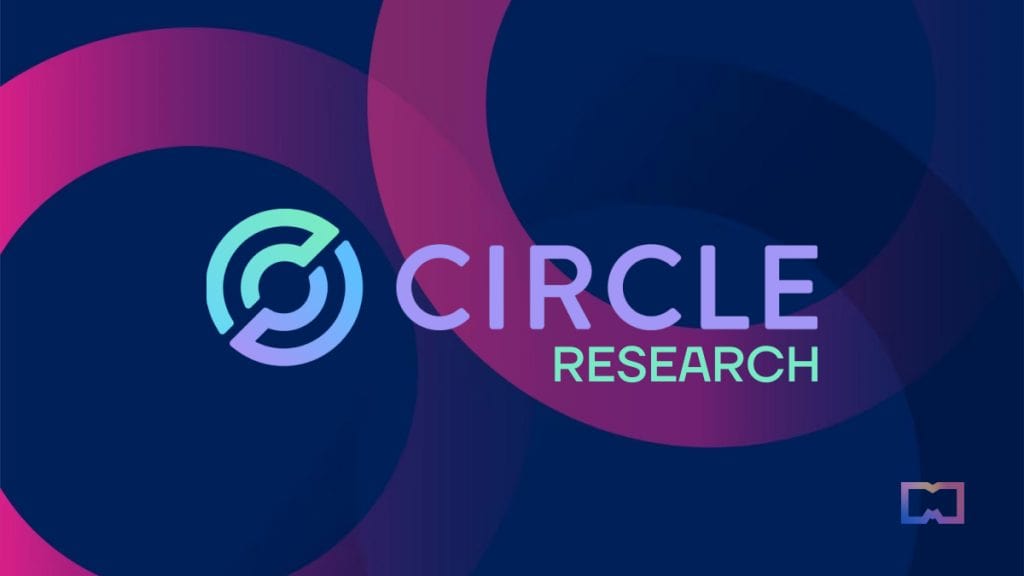Circle Unveils Open-Source Credit Market Protocol for Public Networks
In Brief
Circle has established its research division to promote technological advancements in cryptocurrency, blockchain technology, and the Web3 ecosystem.
Circle Research has unveiled its first project, the Perimeter Protocol, a new standard aimed at revolutionizing online credit markets.

Circle Today, Circle has introduced the Perimeter Protocol, an innovative open-source framework designed to make credit transactions online more efficient. They also announced their intent to launch Circle Research.
The Perimeter Protocol represents the inaugural offering from Circle Research. The company explains that this protocol comprises a collection of smart contracts founded on open standards, which facilitate secure and transparent capital exchanges on public platforms.
According to Circle, its USDC and EURC stablecoins have become vital assets for diverse groups, including developers, businesses, and individual users, especially within the growing decentralized finance (DeFi) lending sector.
However, those new to these financial landscapes encounter challenges pertaining to the safe unlocking of credit on blockchain platforms via robust standards and underwriting practices.
To tackle this challenge, Circle has introduced the Perimeter Protocol, aiming to integrate real-world assets as well as loans that lack sufficient collateral into a publicly available service. Perimeter white paper and a public Github repository One of the highlights of the Perimeter Protocol is its versatility, enabling it to cater to a myriad of credit applications.
These applications range from invoice financing for SMEs to institutional crypto lending for trading opportunities, facilitating advances for global payroll and enabling instantaneous settlements in merchant transactions.
Circle’s Perimeter Protocol is designed to address online credit transactions on public networks with a focus on real-world applicability. Its goal is to simplify credit processes for organizations through uniform standards in underwriting and permissions.
The whitepaper highlights that the protocol allows Pool Admins—responsible for managing underwriting risk and pool dynamics—to modify fee structures and pool attributes whenever needed. Additionally, the protocol brings predictability and transparency to lenders, ensuring a trustworthy lending environment.
Circle asserts that the protocol functions without associated fees and does not necessitate a native token. This feature allows developers to build on a shared public infrastructure, enhancing existing market functionalities.
These functionalities encompass venture debt, trade financing for global corporations, revenue-based funding for businesses maintaining on-chain records, instant settlement using stablecoins to streamline fiat payment systems, syndicated loan markets across various sectors, and emerging fintech solutions for consumers and SMEs.
"DeFi protocols have revolutionized how open networks utilizing stablecoins provide value and enhance financial inclusion for anyone with a wallet and internet access,\" stated Rachel Mayer, Circle’s VP of Product. \"The transparent flow of funds and implementation of smart contracts under the premise of 'code is law' lead to improved efficiency, automation, speed, and scalability compared to traditional financial systems through programmable infrastructure and around-the-clock access to digital assets.\"
Additionally, please remember that the content presented on this page is not intended to serve as legal, tax, investment, or financial advice of any kind. It’s crucial to invest only what you can afford to lose and seek independent financial counsel if you have any uncertainties. For more information, we recommend reviewing the issuer's or advertiser's terms and conditions, along with the relevant help and support resources. MetaversePost strives for accurate and impartial reporting, but market dynamics can shift without prior notice.
Disclaimer
In line with the Trust Project guidelines Cindy is a journalist working with Metaverse Post, focusing on web3, NFTs, the metaverse, and AI, particularly through interviews with influential players in the Web3 sector. Having conversed with over 30 executives at the C-level and beyond, she continually brings valuable insights to her readership. Originally hailing from Singapore, Cindy has made her home in Tbilisi, Georgia and holds a Bachelor's degree in Communications & Media Studies from the University of South Australia, along with a decade’s worth of experience in journalism and writing.







